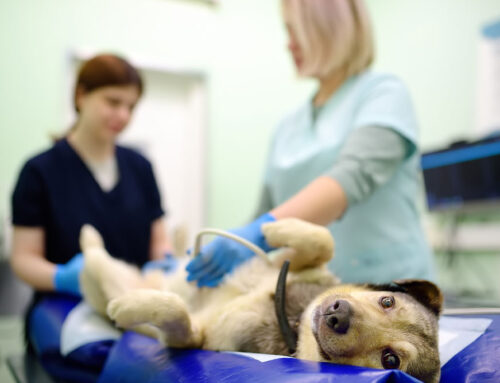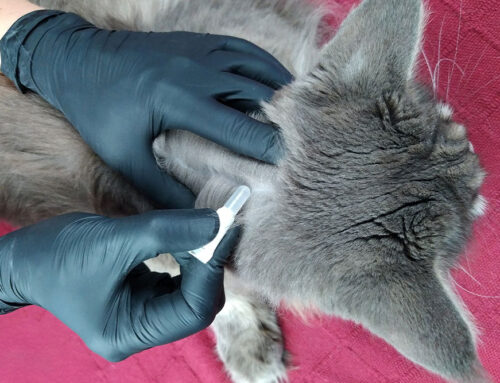Comprehensive Palliative and Hospice Care at Southern Crossing Animal Hospital
At Southern Crossing Animal Hospital in Memphis, Tennessee, we understand that the final chapter of a pet’s life is one of the most emotionally complex times an owner can face. Whether your pet is living with a terminal illness or declining from age-related conditions, palliative and hospice care can offer a compassionate, supportive path focused on comfort, dignity, and meaningful time together.
Our goal is to ensure that every pet receives attentive, personalized care and that every owner feels supported through the process.
Understanding the Essentials of Palliative and Hospice Care for Pets
What Is Palliative Care?
Palliative care focuses on managing chronic or terminal conditions with the goal of improving comfort and minimizing pain—not curing the disease. It’s often used for pets with:
- Cancer
- Kidney, liver, or heart disease
- Chronic arthritis or mobility loss
- Cognitive dysfunction or dementia
For an in-depth guide on managing mobility and pain in aging pets, see the Mobility Matters Guide by AAHA.
What Is Hospice Care?
Hospice care extends palliative support to focus entirely on a pet’s final days or weeks. It is a family-centered approach that provides comfort care at home or in the clinic, giving you time to say goodbye in a peaceful and respectful way.
Recognizing When Your Pet May Need End-of-Life Care
Determining when it’s time to consider hospice or palliative care is never easy, but several signs can help guide your decision.
Common Indicators Include:
- Unmanageable or chronic pain, despite treatment
Learn the subtle signs of pet pain here.
- Significant mobility loss or frequent falls
- Declining appetite or hydration
- Incontinence or hygiene difficulties
- Increased anxiety, confusion, or nighttime restlessness—which may indicate Cognitive Dysfunction Syndrome
Evaluating Quality of Life
Use structured tools like the AAHA Quality of Life Scale or the LSU HHHHHMM Quality of Life Assessment to evaluate how your pet is feeling across key areas: pain, appetite, hygiene, happiness, mobility, and whether they’re having more good days than bad.
Managing Pain and Physical Decline
Relieving discomfort is the cornerstone of palliative care. Our team customizes pain management strategies based on your pet’s diagnosis, age, and response to treatment.
Medical Options May Include:
- NSAIDs for chronic inflammation (e.g., arthritis)
- Gabapentin for nerve-related pain or mobility issues
- Opioids for more severe or cancer-related pain
- Topical therapies for localized pain or wounds
Supportive Therapies
- Acupuncture: A non-invasive way to reduce pain and promote relaxation.
- Laser therapy: Helps reduce inflammation and promote tissue healing.
- Hydrotherapy and physical therapy: Excellent for pets with joint pain or decreased strength and balance.
Assistive Devices and Home Modifications
Mobility loss doesn’t have to mean the end of independence. We recommend exploring assistive devices like:
- Slings or harnesses for support
- Ramps for stairs and car access
- Non-slip flooring or mats for traction
- Orthopedic beds for pressure relief
Create an arthritis-friendly home environment with practical adjustments to minimize daily strain on aging joints.
Nutrition, Hydration, and Comfort at Home

As pets age or deal with illness, their dietary needs often change. Many pets benefit from:
- Easy-to-digest foods, sometimes in smaller, more frequent meals
- Appetite stimulants if eating becomes difficult
- Subcutaneous fluids to support hydration, especially in pets with kidney disease
We can help you adjust your pet’s care routine as needed to support daily comfort at home.
Euthanasia: A Compassionate Final Gift
When Is It Time?
Euthanasia is never an easy decision, but it can be the kindest choice when your pet’s suffering outweighs their ability to enjoy life. If you’re struggling with this decision, our team will walk you through it with empathy and transparency. Refer to this helpful guide on Euthanasia Considerations from Colorado State University.
Home Euthanasia and Aftercare
We offer in-clinic and at-home euthanasia options to allow your pet to pass peacefully in a familiar setting. Aftercare options, including cremation or burial, are available. For emotional support after loss, visit The Association for Pet Loss and Bereavement.
Grieving and Healing
The loss of a beloved pet is a deeply personal experience. It’s okay to grieve—and to ask for help. If you’re navigating this stage, you may benefit from Cornell’s Pet Loss Resources and Support, which include grief counseling, support groups, and memorial ideas.
At Southern Crossing Animal Hospital, we believe that end-of-life care should be just as thoughtful and individualized as any other stage of veterinary medicine. Whether your pet is entering their senior years or facing a terminal diagnosis, we’re here to help you make decisions with confidence, compassion, and support.
If you’re beginning to notice signs that your pet may be struggling, or simply want to prepare for what lies ahead, contact us to discuss a personalized palliative or hospice care plan.
Every moment matters—and we’re here to make them count.








Leave A Comment